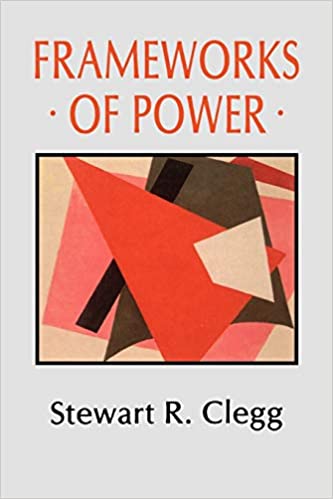Frameworks of Power
Availability :
In Stock
₹ 4,039.20
M.R.P.:₹ 5049
You
Save: ₹1,009.80 (20.00% OFF)
(Inclusive
of all taxes)
Delivery:
₹ 0.00 Delivery charge
Author:
Stewart R Clegg
Publisher:
SAGE Publications Ltd
Edition:
1st Edition
ISBN-13:
9780803981614
Publishing Year:
August 1989
No. of Pages:
320
Weight:
450 grm
Language:
Unknown
Book Binding:
Paperback











